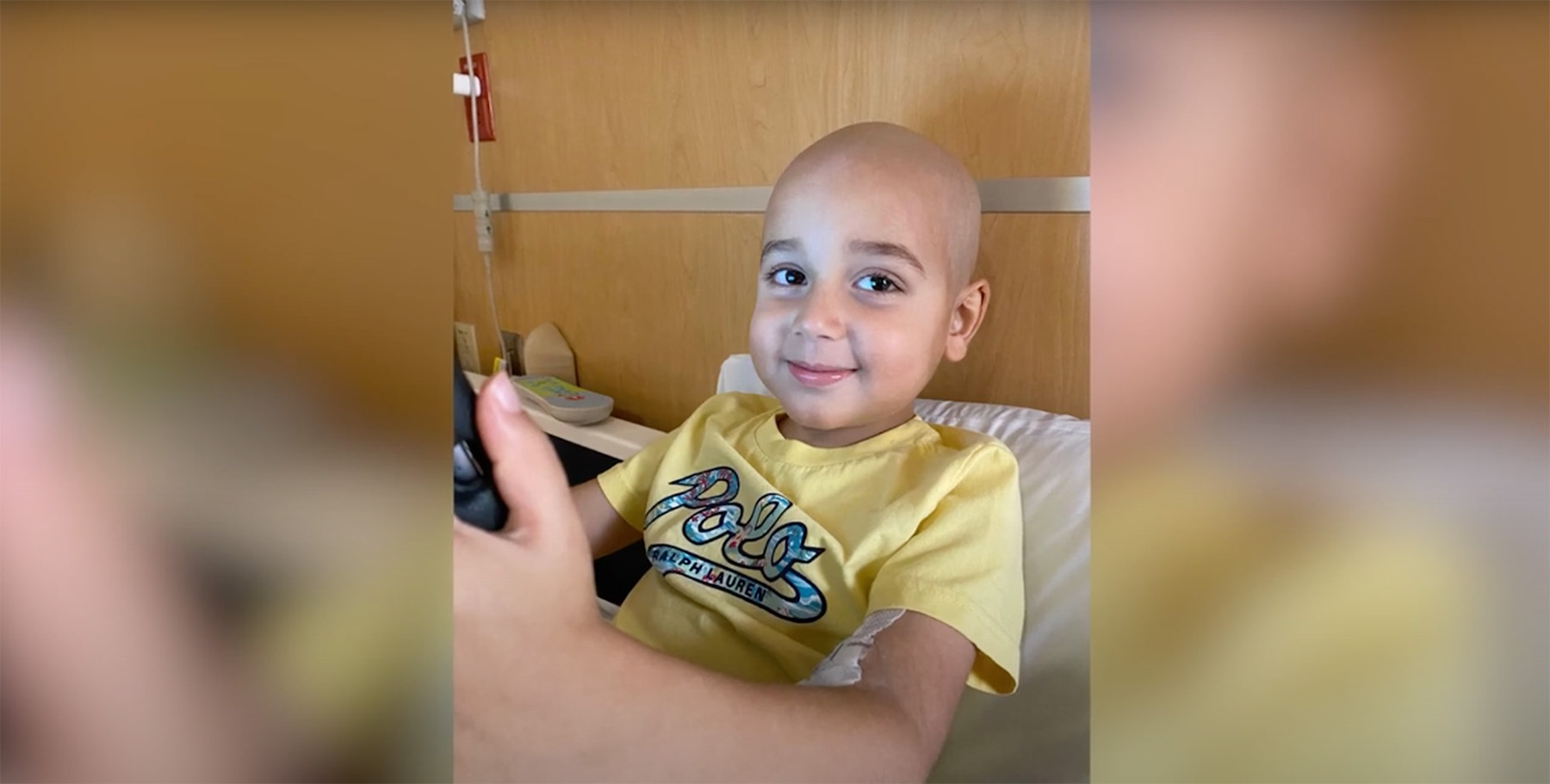Childhood Leukemia: Learn about Alex’s Story

Alex Pérez’s parents celebrate that their six-year-old son is in remission from leukemia, the most common type of cancer in children and adolescents.
“We are very happy to see him healthy and leading a normal life like any child,” says his mother, Vitia López. “He couldn’t play in the park, go to daycare or school, or share with other children his age until now.”
Leukemia is a type of blood cancer that originates in leukocytes or white blood cells, which are formed in the inner part of the bone marrow.
Alex was diagnosed with acute lymphocytic leukemia (ALL) when he was 18 months old.
“After 3 days with a high fever, we noticed that he was very pale and his father, who is a doctor, ordered laboratory tests,” says Vitia. “We couldn’t believe it when they called and gave us the diagnosis.”
That same afternoon, on the recommendation of the pediatrician, the child was transferred to the hospital closest to his residence in Port St. Lucie, Florida.
The race against leukemia was imminent; Alex’s type of leukemia was fast growing, so his chemotherapy treatments began immediately.
Unfortunately, these wore off over time and Alex relapsed at four and a half years old.
“They told us that they could no longer offer him any other type of treatment and referred him to Sylvester Comprehensive Cancer Center. “Alex needed a bone marrow transplant.”
Dr. Julio Barredo, who is a pediatric oncologist and hematologist and director of the Sylvester Pediatric Cancer Program, says: “A bone marrow transplant is indicated when initial treatment fails or after a relapse. The intention is to cure the patient and, in fact, there is a good percentage of patients who are cured with the transplant.”
Sylvester Comprehensive Cancer Center, part of UHealth – University of Miami Health System, is a leader in the treatment of leukemia and bone marrow transplantation.
“We are not the only pediatric bone marrow transplant program in South Florida, but we are the only one that has the ability to supplement the patient’s treatment with laboratory research so that it improves, is more effective and less toxic,” says Dr. Barredo.
Once at Sylvester, Alex began pre-transplant treatment, called conditioning, which would put him in a state of remission. The purpose was to suppress the immune system to reduce the likelihood of rejection of the bone marrow graft.
His conditioning plan included chemotherapy, immunotherapy, and twice-daily radiation under anesthesia. This was a very intense treatment and it made him tired. But during all that time, he was able to overcome the symptoms.
“He is a very positive, brave, and happy child,” says Vitia.
Once in remission, the transplant was performed with the bone marrow of his 25-year-old brother, with whom he had a 50% compatibility.
Dr. Barredo assures that Alex responded well to the intense treatments and the bone marrow transplant and was able to recover from the complications that arose. “I don’t think anyone could say that Alex ever had cancer or that he had bone marrow treatment. Alex is a completely normal child and that is one of the satisfactions that those of us who practice this type of medicine receive.”
According to the oncologist, currently, the most common types of leukemia in children can be cured in the vast majority of patients. However, they require long and intensive treatments.
Sylvester’s pediatric oncology program was designed with the unique needs of children and adolescents in mind. To this end, the Alex’s Place clinic was created, where patients receive first-class outpatient care from a team specialized in multiple disciplines.
“Alex’s Place was conceived with the idea of offering a space that does not intimidate children when they come to receive the treatment they need,” says Dr. Barredo.
At the end of 2022, the boy received his last treatment and was finally able to attend school. “I like art, science and computers,” says Alex, for whom his greatest wish is to go to Hawaii and see the volcanoes. Another of his wishes is that other children get better.
For her part, Vitia is very grateful for the support received from her family and from Dr. Barredo and his team.
“I advise the parents of all children who need cancer treatment to go to Sylvester because there they will find the best doctors, very good resources, and excellent human quality,” says Vitia.
[Video in Spanish.]
Video and article written and produced by Shirley Ravachi.
Tags: bone marrow transplant, Childhood Cancer, Dr. Julio Barredo, pediatric oncology
